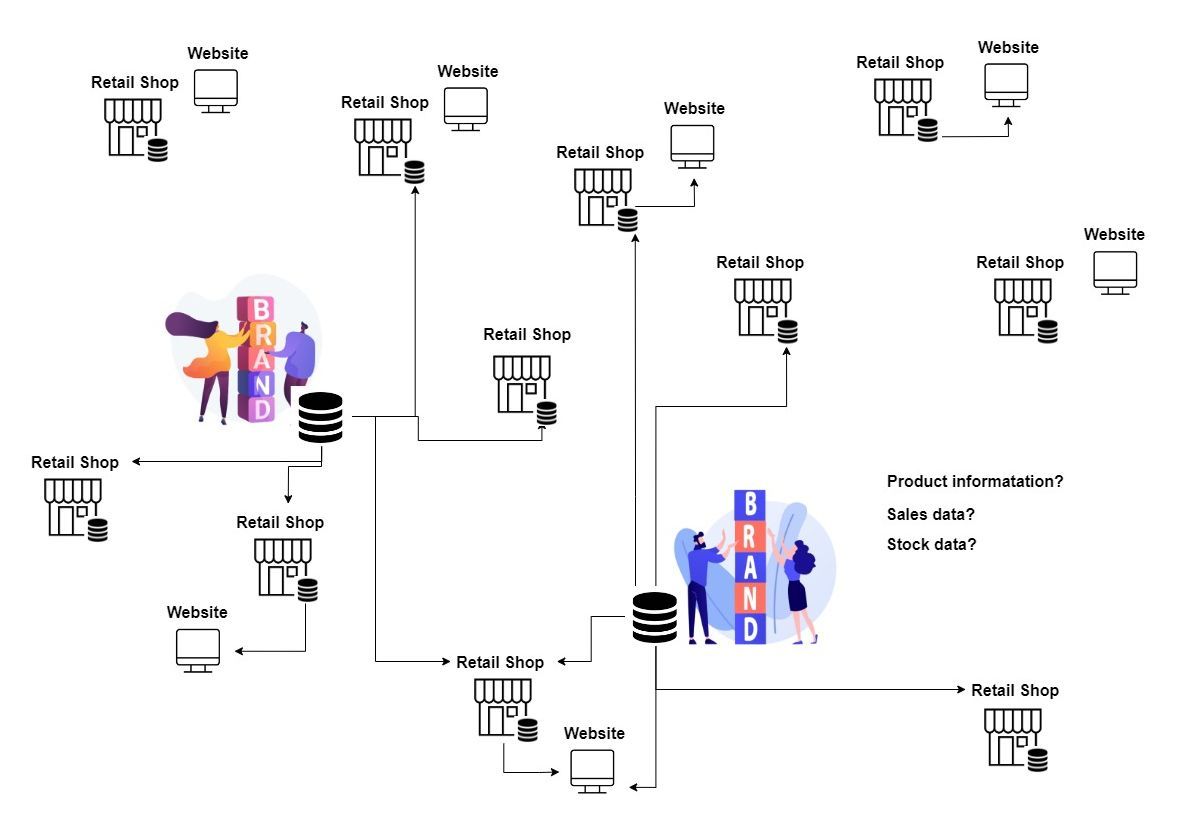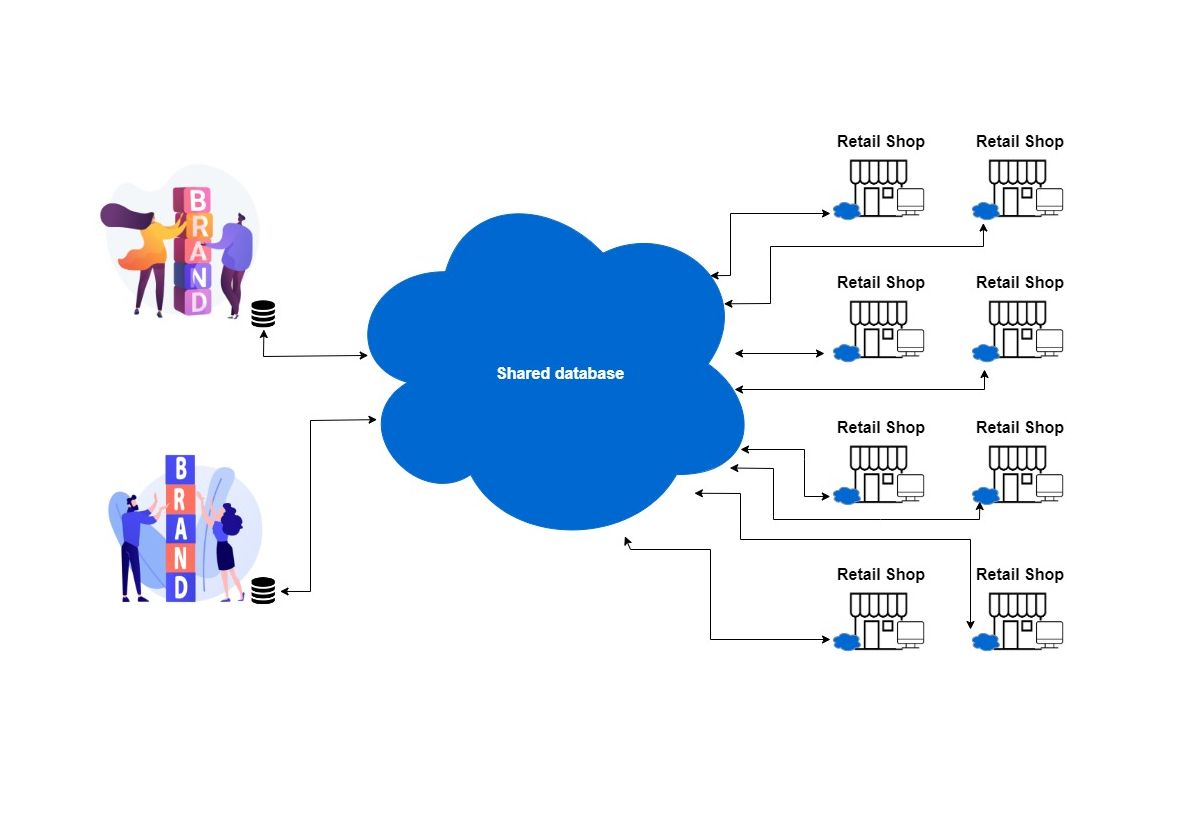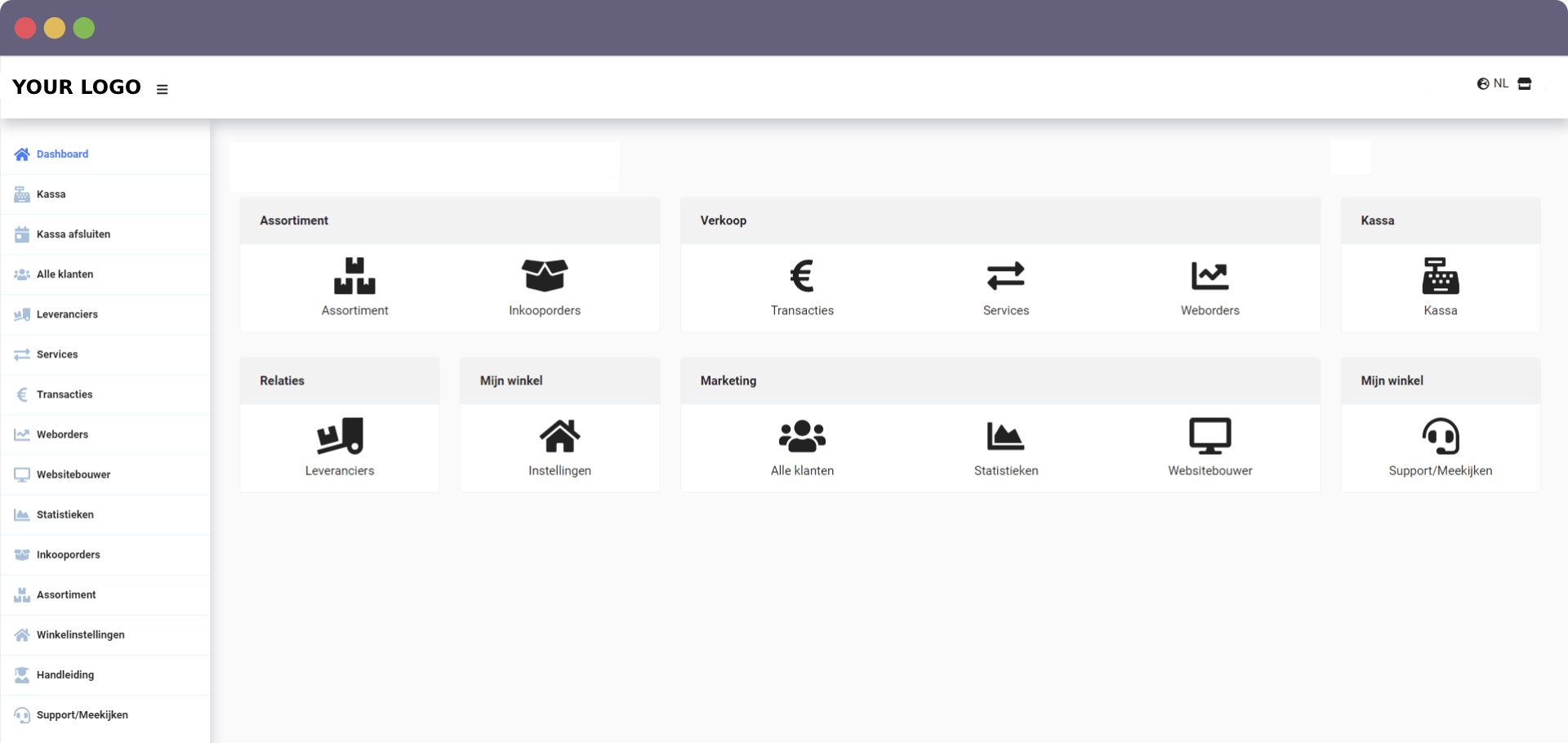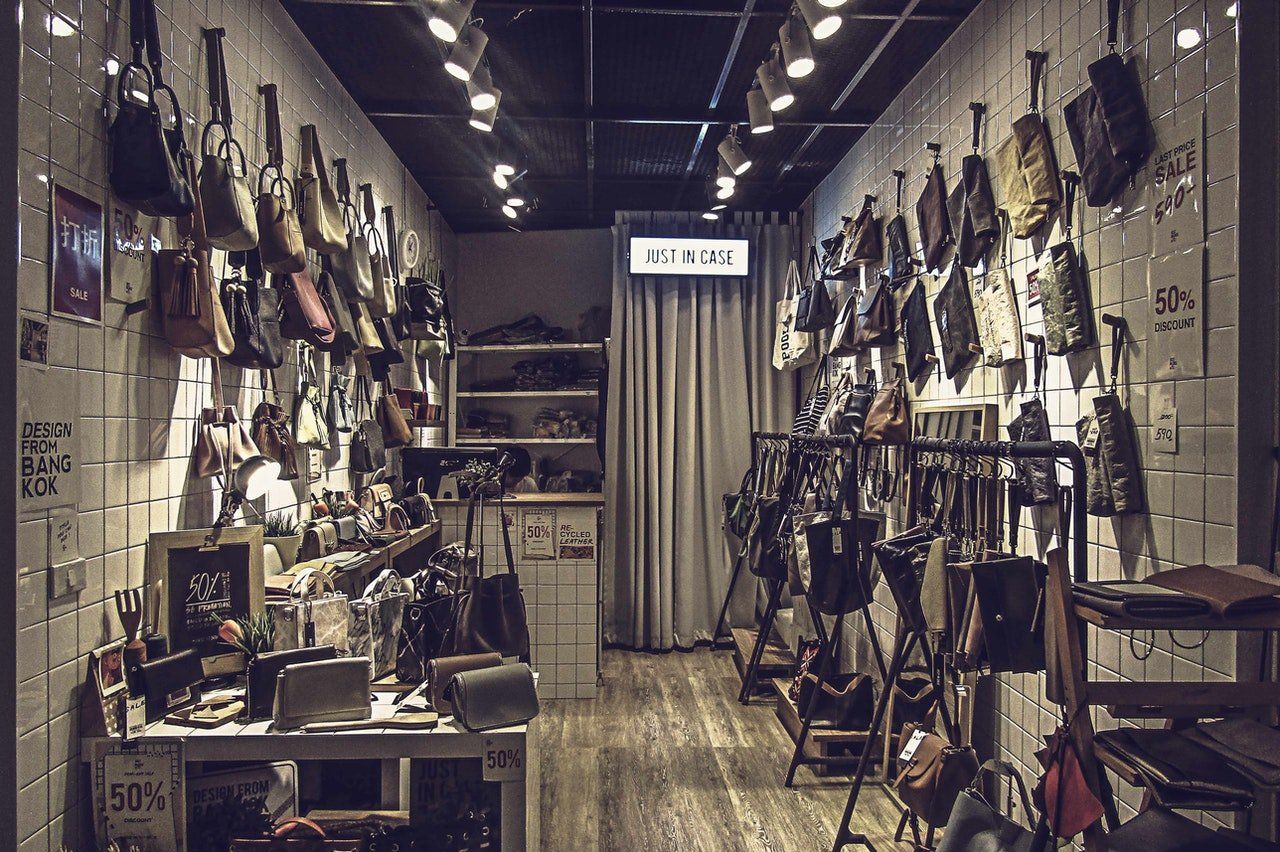Create a value network system for retailers and suppliers to collaborate and save 60% of time.
With Retailgear you can create your own value network.
Provide the engine for retailers and suppliers to connect with each other. Shared processes are automated, while each company retains its independence and can continue to distinguish itself from the competition.
THE KEY to achieving significant time savings and revenue growth for retailers and suppliers lies in seamless collaboration within a unified system.
With Retailgear's pioneering software solution, retailers and suppliers can harness the power of collaboration without the hefty price tag. Leveraging over a decade of industry experience, our whitelabel software offers unparalleled flexibility and functionality, empowering businesses to navigate the digital landscape with ease.
By embracing Retailgear, you not only optimize operational efficiency but also foster a thriving ecosystem where retailers and suppliers seamlessly connect and automate shared processes. This enables each company to maintain its unique identity and competitive edge while driving industry-wide integration and automation.
Contact us now for a demo and FREE account to test it yourself!
Contact Us
Automate your retail industry with ONE solution.
Transform traditional standalone systems into a smart network approach.
Get the all-in-one platform for your retailers and their suppliers to save time and serve the consumer together.
Did you know?
Retailers and suppliers can save a lot of time and grow in revenue by working together in one system.
Provide a central database to enable inventory management collaboration.
Create transparency and provide real-time insight into stock and sales at suppliers and retailers.
Integrate easily with other systems and customize up to 85% of the software code.


...but it is hard to build the digital infrastructure.
Creating a central system that works well for everyone and is user-friendly requires a high investment and a lot of time.
That is where we come in.
Use our software
completely whitelabel to empower your retail industry for a fraction of the cost.
Utilize our 10+ years of experience in building a solution for our own retail industry.
Get guidance from our support and development team.
Robust software of the latest technology (Angular 13, Bootstrap 5, NodeJS, MongoDB).

How it works
Admin & Integrations
Be the administrator of the value network and generate recurring sales from retailers and suppliers. Integrate your own software or third party systems. You can also resell the integrated cash register and websitebuilder.
Local businesses
Give retailers the ability to easily book and sell products from your central database with a POS system. Furthermore, let retailers show real-time inventory on their website and give the option to build and maintain their webshop in the websitebuilder.
Suppliers
Give suppliers the possibility to support their dealers and give them real-time insight into stock level and sales at the shops. The supplier can make product information available and easily create orders for his dealers (based on minimum stock and sales) with the
B2B Sales App.
What you get
The system is designed and built for easier collaboration as an industry. Therefore, a value network is divided into 3 portals.
Admin portal
A clear admin portal to manage your value network and the central database.
- Set properties
- Account management
- Supplier management
- Brand management
- Modules integration
- Update permissions
Retailer portal
Provide shops the solutions they need. Deliver more value than your competition.
- Inventory management
- Product information management
- Supplier management
- Shop settings
- Websitebuilder
- Cash register
- Build integrations
Supplier portal
Give suppliers the ability to integrate with their dealer network.
- Dealer network management
- Stock and sales data access
- B2B webshop
- Sales order management
- Share product information
- Supplier management settings
- Use integrations
Learn everything about a value network for retail. Get ideas, examples and a full explanation.
Value networks are based on the idea of collaboration. They are characterized by shared responsibility, shared risks and rewards, and open communication between the members. The goal of these networks is to create value for all parties involved. On this page, we will give you more ideas and examples. Furthermore, I will explain more about different concepts and their benefits. Last but not least, you will discover how to build a value network for retail yourself.
What is a value network?
A value network is a group of companies or organizations that work together to create value for each other. Value network is a term used to describe a community of people or businesses that share or intend to share knowledge, resources, ideas and capabilities.
Meaningful collaborative value networks can be created by arranging network nodes as a graph with connectors between them. In the simplest case, the nodes are people and the connectors are friendships. In this case, it's called social network analysis. However, on this page we explain more complex networks for the retail industry.
Purpose of a retail value network
The main purpose of a retail value network is to connect retailers with each other and with suppliers. These networks are used to manage the flow of goods and services in a retail environment.
This network can be defined as a group of companies that produce goods and services for customers in a particular industry. A retail value network will consist of retailers, suppliers, and other third-party providers. These networks are often created with the goal of improving customer experience through cost savings, greater product availability, and more efficient distribution.


Everyone adds value in their own way
The key is that every user adds value in their own way. Collaboration is needed as consumers are orienting themselves in new ways and want to be served through all channels.
To meet this need, the retail industry needs to work more closely together. In this way everyone can focus on what they are good at and parties can continue to strengthen each other. For example, as a retailer you have less time to do online marketing, but you can offer consumers the best offline experience.
The most important key of a value network
In a network, everyone is rewarded for their own added value. For example, the retailer for the local experience and his service. The supplier for offering an optimal range and (online) marketing. By sharing real-time data with the supplier, the retailer can drastically reduce its inventory and better tailor the range to its customer.
The system enables users to collaborate in the areas of inventory management, service and marketing. With this concrete approach, each user saves time and together they are able to offer the consumer the perfect omnichannel experience.
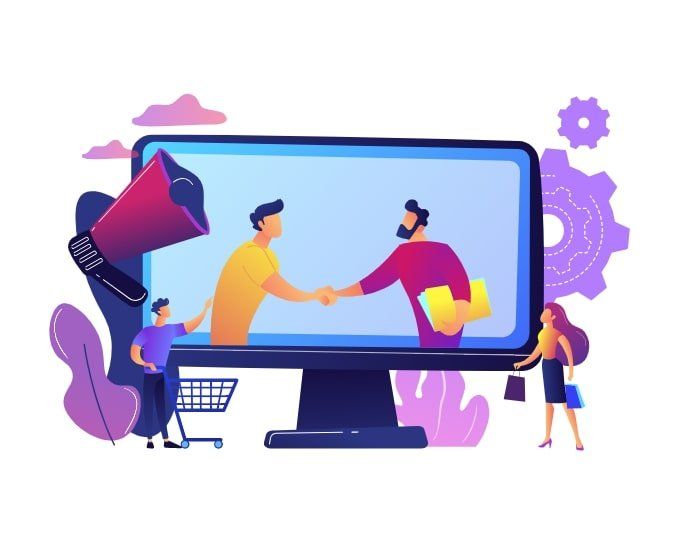
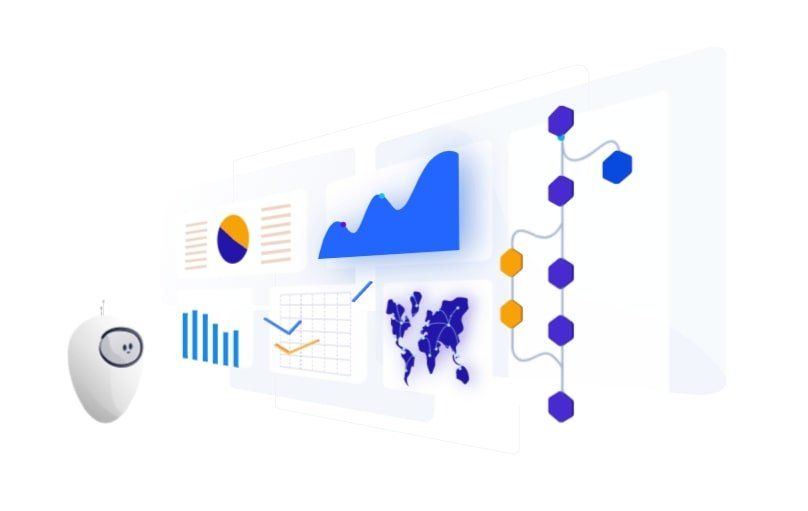
Advantages for retail service providers
Do you offer IT services to retailers in a specific industry? Give them and their suppliers an unparalleled opportunity to collaborate more closely as an industry. In this way you beat the competition and increase your own recurring income. The system works completely in the cloud, but can also be integrated with offline software.
Shared database
Make it possible for your customers to work in the same product database. This saves time when booking and showing products online.
Offline & Online Connection
Make it easy for retailers to link a webshop to their cash register. Offer a complete omnichannel solution and increase your recurring revenue.
Inventory management
Give your retailers the option to better tailor the assortment to the local consumer by having access to industry data.
Online marketing
Offers brands the opportunity to effectively reach the local consumer through the retail store.
Example of a value network for the retail industry
So above, we theoretically look at the meaning and benefits of a value network. But how can you make this practical? Each company often has its own wishes and needs. The most important thing is to automate shared processes and let unnecessary work evaporate. For the retail industry you can think of sharing product information, orders and sales data.
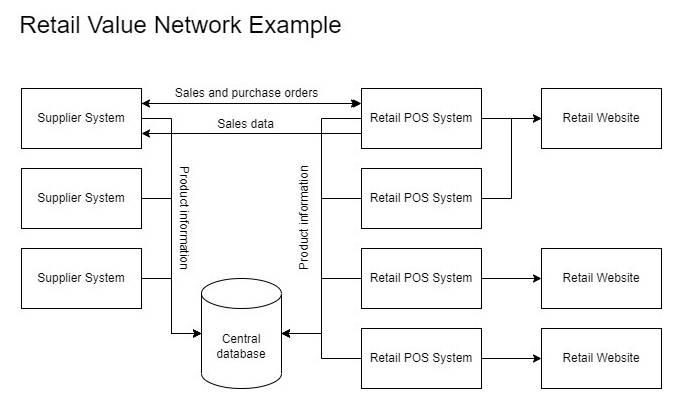
Linking different systems together
The basis is to link multiple systems together. Think of the a POS system (cash register, inventory management, webshop) and the supplier system. With customization, this quickly becomes very expensive for retailers. Not only to make the connection, but also for maintenance. That is why we show below how you can achieve this more easily. I also wrote an article with more information about the B2B integration.
Central product database
It is important to have a central place where all product information is available from all suppliers. That is one of the unique features of our product information system. The big advantage is that the retailer can easily add the products to his store in this way. Furthermore, the product will automatically be shown on the website.
Retailers should also be able to create their own products in this database. These must then not be visible to other retailers. Of course, this only applies to self-made items. Products from suppliers will always have to be visible to all users who want to use the same product. In this way, every user in the industry works with the same product ID.
Sharing orders
In many industries, the purchase order and the sales order are still different. Both companies have to manually place this order in their own system. The first form of automation is with a so-called EDI invoice. This makes it easier to place the order directly in your system. With an API connection, however, an even more complete link can be set up.
Of course the best is if the purchase order is the same document as the sales order. In this case, if one of the two parties makes a change, it is also immediately updated for the other company. This is an important part of a good collaboration between retailer and supplier within one network.
Sharing sales data for better decisions
Third, it is important that sales and inventory insights are realtime and easily accessible. In this way, the store can better collaborate with its supplier in the field of stock management. He can also better share the risk with the supplier.
In addition, it is necessary to be able to compare your own data with the general industry data. In this way, the system can make recommendations about what is interesting to buy and what is not. This allows you to make better decisions and reduce the risk of overstocking.
Best type of value network for the retail industry
The best kind of value network for the retail industry is a combination of the principles of Clayton Christensen Network and Fjeldstad and Stabells Network. These models offer the ideal combination to innovate in collaboration with the existing companies in the market. A short explanation below.
Clayton Christensen describes that existing relationships are usually leading in any retail industry. Think, for example, of large suppliers with many brands that can influence retail stores. Newcomers must conform to the general rules set by these parties. This makes innovation difficult.
Nevertheless, the example above is a mix with the model of Fjeldstad and Stabells. The premise is that every user who joins the network adds value (for example; Facebook). This network effect is also the strength of Retailgear. Every retailer who starts working with the system will bring more general data. Every retailer that will work with the system will make more general data available. This ensures more and more efficiency in the industry. In addition, it saves time and results in faster development of more functionality that is available to everyone.
How to build one yourself
Building a complete system requires a lot of technical knowledge, time and an investment. That is why we have a
white label solution of the above technology. This allows you to build a value network for retail under your own brand. The big advantage is that the system continues to develop and that you only pay a monthly fee for usage.
The system consists of 3 different portals
1. One admin account for the settings of the value network, such as the product attributes of the database, integrations and branding.
2. Through the retailer portal, retailers can do their stock management and easily link their cash register to a webshop.
3. Via the supplier portal, suppliers can see the stock and sales of their dealers in real time. By making product information available, they can easily support their customers.
Integrate & Configer
Create an account for your own environment and then determine what languages you will be working in. Install the boilerplate code that you were given and make sure that it is properly connected to your central database within 4 weeks. Setting product specifications and permissions should be done after that.
Import your data
Import your first shop with the Retailgear tool, so inventory is matched and updated with the central database. Build new features in the cloud on our boilerplate, such as statistics or your own cash register.


